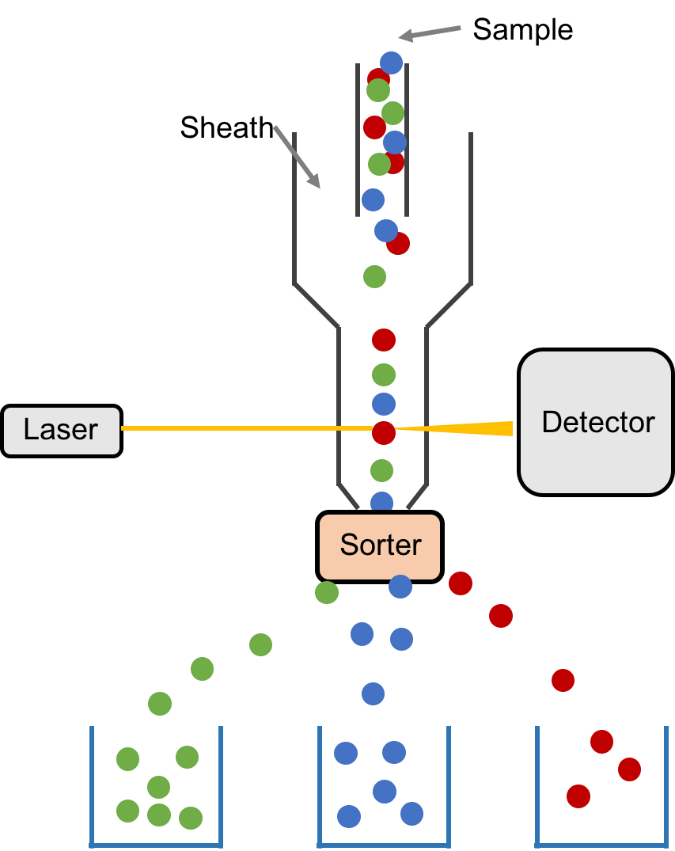Flow cytometry is a widely used laser-based biophysical technology for cell counting, cell property measuring, and biomarker detecting. A standard flow cytometry system consists of fluidics, optics and electronics. During the assay, suspended cells pass through a laser beam one at a time, and the parameters of the cells are detected and measured via light scattering. When connecting to a sorting device, it also allows physical separation of cells and biological particles (Figure 1).
 Figure 1. A schematic description of the flow cytometry system.
Figure 1. A schematic description of the flow cytometry system.
The flow cytometry technique was originally developed in the animal system. Over four decades ago, the flow cytometry assay was employed in plants for the first time. Over the years, flow cytometry has gained its popularity in the field of plant biology, as an efficient method for quantitative cell measurement with reduced cost. So far, the flow cytometry technique has been applied in differential cell/tissue types of a variety plant species (1). Lifeasible, as a leading plant biotechnology company, provides high-quality flow cytometry services that cover a wide range of research purposes, including:
Here at Lifeasible, we provide one-stop services for plant flow cytometry analysis with high efficiency and guaranteed quality. Our experienced researchers and scientists offer sophisticated intellectual and technical insights from experimental design to data analysis. Welcome to contact us for our detailed service categories, technical consulting and collaborations.
Reference:
Lifeasible has established a one-stop service platform for plants. In addition to obtaining customized solutions for plant genetic engineering, customers can also conduct follow-up analysis and research on plants through our analysis platform. The analytical services we provide include but are not limited to the following:
July 13, 2024